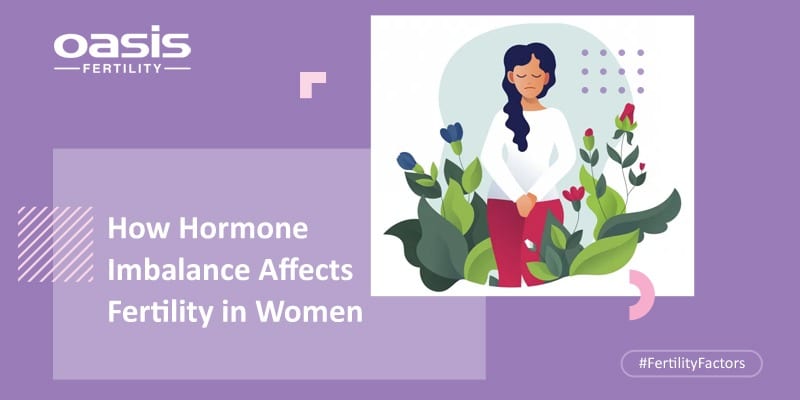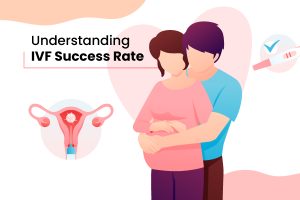Hormone Imbalances and Infertility in Women

Hormones are vital to the proper functioning of the body. A human body has over 50 known hormones cruising through its blood to regulate bodily functions and the various systems in it. These functions include metabolism, the regulation of temperature, and growth. Any abnormality in the quality or the quantity of the hormones can cause hormonal imbalance. Timing of the hormone’s release and its interaction with other hormones are also very important.
Several hormones are responsible for maintaining fertility in females. An imbalance in any one of these hormones can cause difficulty in becoming pregnant. If you have been trying to get pregnant for a long time or just planning for a baby now, it is always wise to know if your hormone levels are normal beforehand.
Effect of Hormones on Fertility:
- Follicle-stimulating hormone (FSH)
This hormone is key to the regular menstrual cycle and helps induce the maturation of eggs in the ovaries. Women who have ovarian function loss have high levels of FSH as the body tries to compensate for the lack of function. - Luteinizing Hormone (LH)
Luteinizing hormone is responsible for the release of the mature egg during ovulation. Most ovulation prediction kits use this hormone as it increases before ovulation. - Anti-Mullerian Hormone (AMH)
Anti-Mullerian Hormone is produced by the ovarian follicles that contain immature eggs. The levels of this hormone are used to predict the number of eggs that are remaining in the ovary. Reduced AMH often can point to infertility. - Estrogen
Estrogen is a hormone that supports the regulation and development of primary and secondary sex characteristics and the reproductive system in females. Estrogen dominance is sometimes found responsible for the difficulty in conception. - Progesterone
Progesterone is a hormone that is vital to maintaining a pregnancy. It helps the uterine lining to thicken to help grow an embryo. Low progesterone levels in a woman can lead to miscarriages. - Thyroid hormones
Among the thyroid hormones, T3 and T4 are the ones that are related to reproduction. These also have an impact on digestion and the metabolic rate. If you have thyroid hormone imbalances you may have a problem getting pregnant. - Prolactin
The hormone prolactin is essential for the production of breast milk. But that is not all it does. It plays an elemental role in helping women get pregnant. If your prolactin levels are not normal, you may experience irregular periods and have ovulation problems.
Signs of hormonal imbalances that affect fertility
Most women experiencing hormonal imbalances can experience one or more of the following symptoms. In many none of the external symptoms can be seen. These symptoms are not to be used to self-diagnose.
- Irregular menstrual cycle
- Irregular bleeding or spotting
- Facial hair
- Acne
- Male pattern body hair or hair loss
- Weight gain
- Mood changes
Causes of hormonal imbalance that can lead to infertility
The most common causes of hormonal imbalances that can cause infertility or difficulty in getting pregnant are
- Anovulation
This is a condition where a woman does not ovulate. - Poly-cystic ovarian syndrome
In PCOS, the woman has a hormonal disorder that causes the eggs to stay immature and turns them into cysts. This can often cause difficulty in getting pregnant and can also cause infertility. - Hyperprolactinemia
In this condition, the woman has an excess of prolactin in their body. This causes them to have irregular periods and infertility.
How is infertility caused by hormonal imbalances treated?
Depending on the hormone causing infertility and the symptoms experienced, your fertility expert may choose medications that
- Regulate the menstrual cycle
- Induce ovulation
- Normalize the thyroid function
- Bring prolactin levels to normal
Your fertility expert may also prescribe lifestyle changes and encourage weight loss to promote fertility.
If you suspect that hormones may be responsible for your infertility, talk to your fertility expert at Oasis Fertility.








